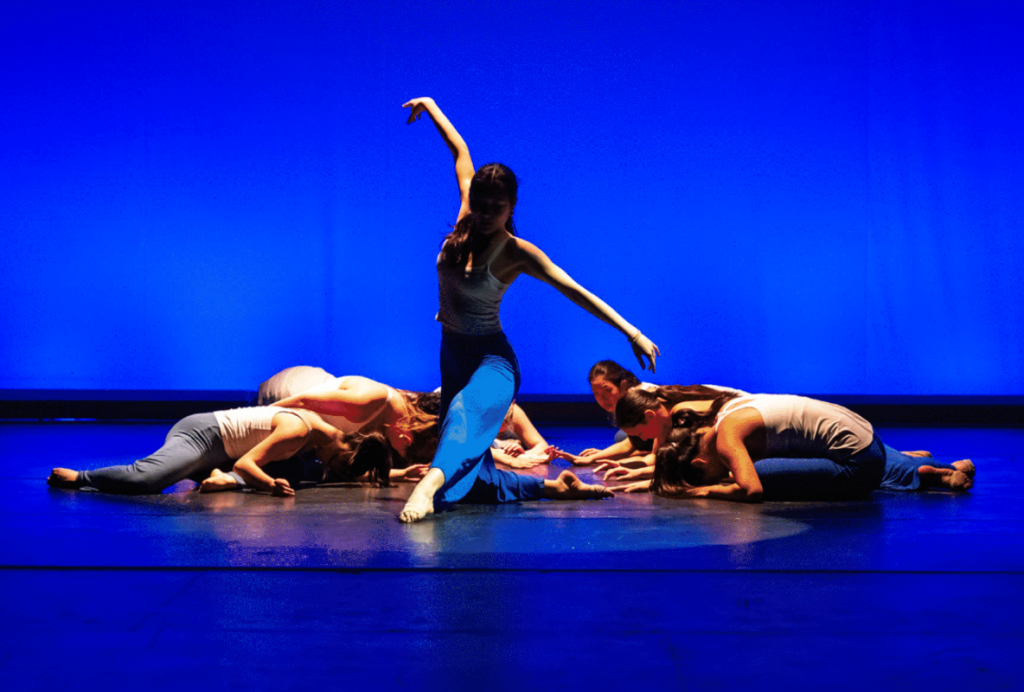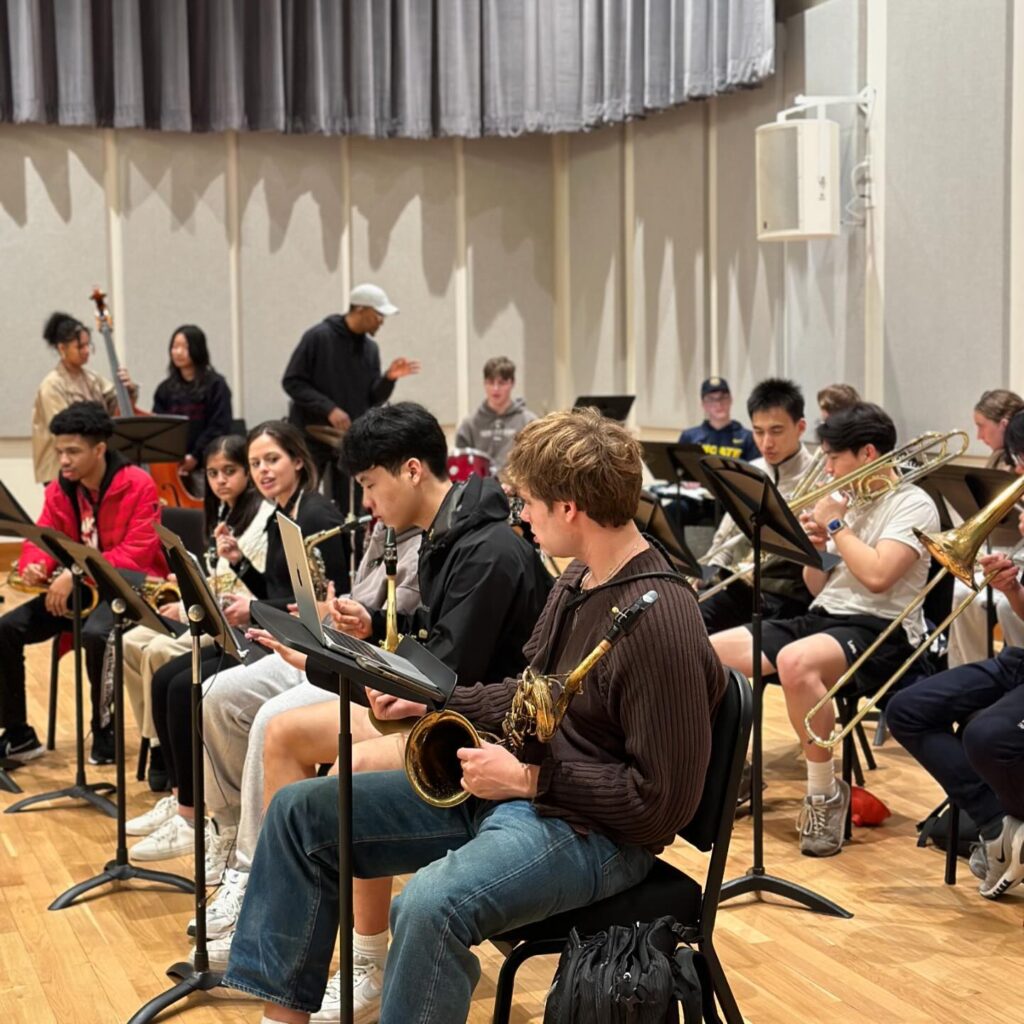So you’ve been cast in this year’s fall production. You’re over the moon. You call your mom to tell her about the role you’ll be playing. But, wait. Your character has an Irish name. Will she talk with a brogue? You grew up in Georgia! Curtain is in two months. What to do?
Students often find themselves in such situations when preparing for plays. Because accents can communicate so much about a show and its themes, they are often the behavioral trait that students aim to perfect. An accent also has the power to shape a role and bring a character to life. Examples of past Choate productions in which students used accents include Blue Stockings (winter 2017-2018) and Brundibár (fall 2017-2018). This fall, Choate will stage Michael Frayn’s Noises Off, which includes different regional accents of England.
While the prospect of learning an entirely new accent may seem daunting, many students offer helpful tricks and tips to master the art. For Ethan Luk ’20, the best tools for learning were movies and exercises. “In preparation [for Blue Stockings], I watched Harry Potter movies because it was the first kind of movie that I saw with British accents. I think a lot of how I try to learn is through watching people speak. Also, Thom, the husband of Tracy [Ginder-Delventhal, a Choate acting teacher], did a lot of tricks with us, like giving us a sentence to repeat over and over in our accent.”
Sophie Mars ’19 also starred in Blue Stockings, but, unlike Luk, who acted as a British man, Mars played the role of an Irish student. On learning accents, she said, “I just run my lines and try different ways until I hear something that sounds right. It’s usually just perfecting a few vowels or a few consonants.” She continued, “For the Irish accent I had to do for Blue Stockings, it was just the R’s, the O’s, and the A’s. Once I got those down, I basically had created the entire accent.”
As Luk did, students learning new accents receive the help of outside campus theatre teacher Thom Delventhal. He works with Ginder-Delventhal, who said: “Accents are a school of study and require diligence to get them right. Thom transposes lines from the script for the students, helping them identify differences from standard American speech. He then teaches them how changing the position of the muscles within and around the mouth, nose, and throat impacts the sound achieved. Every dialect uses a different musculature. After that it is all about drilling, getting notes and making adjustments.”
Sabrina Carlier ’21, who has been cast as Dotty Otley and Mrs. Clackett in Noises Off, has already begun working on her required accent. She said, “For the upcoming fall production, I have to learn two accents. I’m working on an upper-middle-class English accent and a cockney accent. I like listening and following along with tutorials of how to pronounce certain words and sounds. It’s also really helpful to write out my lines in the accent. Finally, what really helps is listening and watching films and television with the accents I plan on learning.”
Although actors share techniques, learning accents is a different process for everyone. Mars advises students to find a personalized method: “Find your own way of picking up an accent. Don’t be afraid to sound stupid for a while, because you will. But once you realize that you have something that will work, just stick with that and work with it. It will kind of hit you and someone will say, ‘Oh! That sounds good.’ ”



